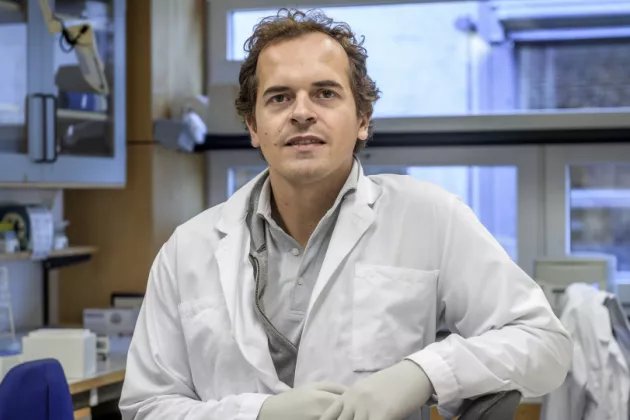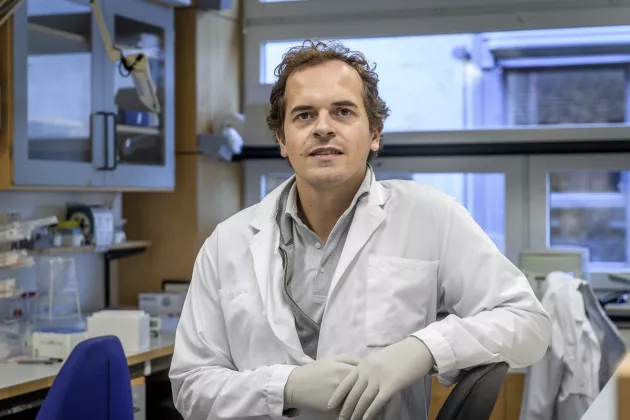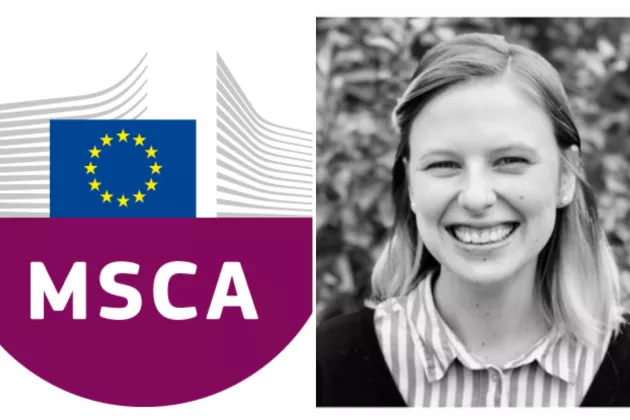Since receiving the ERC Consolidator Grant for the development of new strategies for immunotherapies in 2019, Filipe Pereira has come a long way. To say the least.
One of the goals set out three years ago was to understand what drives the specialisation of dendritic cells. He has now received the ERC Proof of Concept Grant, in order to exploit reprogrammed tumor cells to identify tumor antigens.
“The dendritic cells play an important role in the immune system, since they track down foreign substances in the body such as tumor cells and present them as antigens for the body’s natural killer cells. This tells the natural killer cells which invaders to attack,” says Filipe Pereira, professor of molecular medicine.
Immunotherapy is one way of getting the body’s own immune defences to recognise and attack the cancer cells. For each type of cancer, a number of genetic mutations occur, resulting in specific tumour antigens being produced. Since they are unique to each tumour and patient, they make ideal molecular targets.
“But there is no efficient way at present to identify these special tumor antigens, and as a result immunotherapy has had limited success. There is a need to develop new technology that enables powerful, focused therapies for treating solid tumors.”
Filipe Pereira’s research team have previously identified a combination of three proteins that have made it possible to re-programme human skin cells into dendritic cells. The next step was a to prepare a viral vector with three different re-programming genes. The viral vector then transported the selected genes to the tumor cell, which was re-programmed to a dendritic cell as a result. Filipe Pereira calls the technique Trojan DC, since just like the Trojan Horse, it conceals its warriors within, only to defeat the enemy from the inside. The re-programming of tumour cells technique opens the possibility of being able to identify patient and tumor specific antigens that can summon an immune response.
“Through the research project, which we call NeoIDC, we hope to be able to start a new company, in order to completely explore the platform for antigen identification. We think that this is the path to the next generation of antigen-based cancer vaccines and tailored immunotherapies,” concludes Filipe Pereira.






